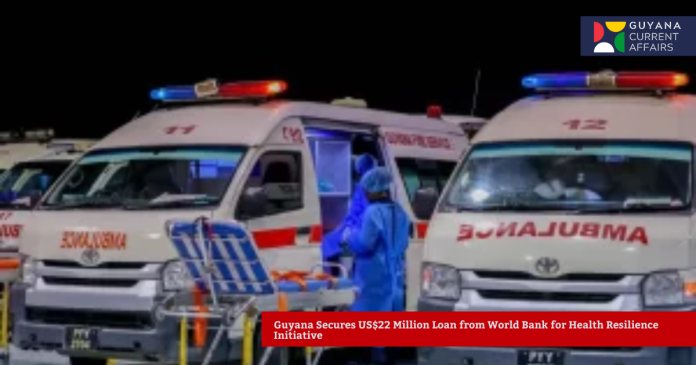The World Bank’s Board of Executive Directors has approved a loan of US$22 million to support a new initiative aimed at enhancing health resilience in Guyana. The project, known as the Guyana One Health Project, is designed to empower the nation in preventing, preparing for, and responding to health emergencies through an integrated approach that addresses human, animal, and environmental health systems.
The World Bank has highlighted that Guyana faces a complex landscape of public health challenges. Non-communicable diseases are responsible for approximately 70% of all fatalities, while infectious diseases such as HIV/AIDS, tuberculosis, and malaria continue to pose significant threats. Additionally, the issue of antimicrobial resistance (AMR) is particularly alarming; in 2019 alone, 147 deaths were directly linked to AMR, with the country recording the second-highest AMR-related mortality rate in the Caribbean.
Despite a largely government-funded healthcare system that serves around 80% of the population, critical shortages of healthcare workers persist, especially in hinterland regions. Furthermore, the country’s health information system remains predominantly paper-based, complicating efforts to track patient care and maintain continuity during emergencies.
To tackle these pressing issues, the Guyana One Health Project aims to modernize and integrate the public health infrastructure. Key components of the initiative include upgrading and decentralizing the laboratory network, transforming the National Public Health Reference Laboratory into a cutting-edge facility, and expanding veterinary and wildlife diagnostic capacities. This will enhance the detection of zoonotic diseases—those that can spread from animals to humans—as well as other illnesses like dengue and malaria. The project also emphasizes building weather-resilient and energy-efficient laboratories to ensure operational continuity during extreme weather events.
Diletta Doretti, the World Bank Group Representative for Guyana, remarked on the importance of a healthy society for economic growth. “This project builds upon earlier health initiatives that addressed vulnerabilities in the health system and directly contributes to the nation’s productivity and long-term prosperity,” she stated.
The initiative will also focus on digitizing health surveillance systems, replacing outdated paper records with integrated platforms that facilitate real-time data sharing between human and animal health sectors. This is critical for addressing AMR and improving disease monitoring at points of entry to manage cross-border health threats effectively.
In addition to system upgrades, the project aims to train a new generation of health professionals—including laboratory scientists and port health officers—equipping them with the skills necessary to detect, report, and respond to outbreaks. Training will encompass not only technical expertise but also support for individuals affected by gender-based violence, which often increases during crises.
The financing for the Guyana One Health Project includes a US$15 million grant from the Pandemic Fund and a US$7 million credit from the World Bank’s International Development Association. The Pandemic Fund is a pioneering multilateral financing mechanism focused on strengthening pandemic prevention, preparedness, and response capacities in low- and middle-income countries.
Recognizing that effective pandemic prevention requires community involvement, the project will also support awareness campaigns across farming communities, schools, households, and the private sector. These initiatives aim to promote responsible antibiotic use, good hygiene practices, and safe interactions with wildlife and livestock.
Since its establishment in 2022, the Pandemic Fund has awarded grants totaling US$885 million and mobilized an additional US$6 billion in resources for pandemic-related investments across 75 countries. With this new funding, Guyana is poised to enhance its public health infrastructure significantly and improve its ability to respond to future health emergencies.


